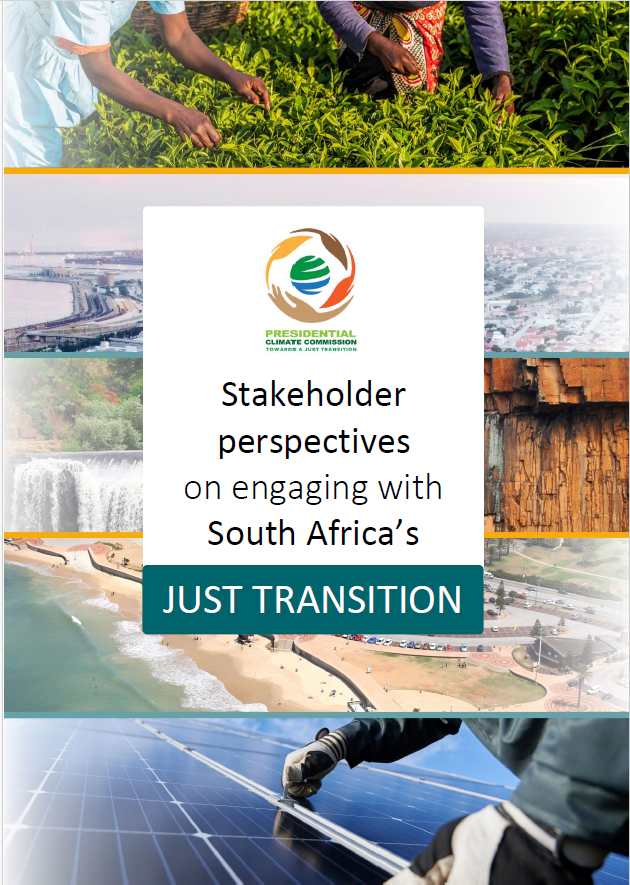Stakeholder perspectives on engaging with South Africa’s Just Transition




Download:
About
Resource summary
South Africa’s Climate Change Bill seeks to establish a legislative framework to enable an effective response to climate change which includes a long term, just transition to a low-carbon and climate-resilient economy and society (Republic of South Africa, 2022). It defines a just transition as a “shift towards a low-carbon, climate-resilient economy, and society and ecologically sustainable economies and societies which contribute toward the creation of decent work for all, social inclusion and the eradication of poverty” (Republic of South Africa, 2022:5).
Achieving an inclusive just transition that leaves no-one behind will need to be underpinned by a strategy to ensure robust stakeholder engagements. Such a strategy, incorporating justice, inclusion, trust and collaboration, will enable and strengthen engagement with social partners on the just transition and climate change. The Presidential Climate Commission (PCC) was established in 2020 to guide South Africa’s national just transition. Its stakeholder engagement efforts contribute to laying a foundation and creating a platform for South Africa to work towards developing a truly just and people-centred transition, underpinned by recognition that the “major economic, social, and environmental decisions required for a just transition require social partners to forge a consensus around the transition” (PCC, 2022a:25).
The primary objectives of this report are to:
- Assess how social partners understand and interpret the just transition; and
- Understand how the PCC can strengthen its stakeholder engagement work, in building trust and social consensus on a just transition in South Africa.
The report is also available on the Presidential Climate Commission’s website here


